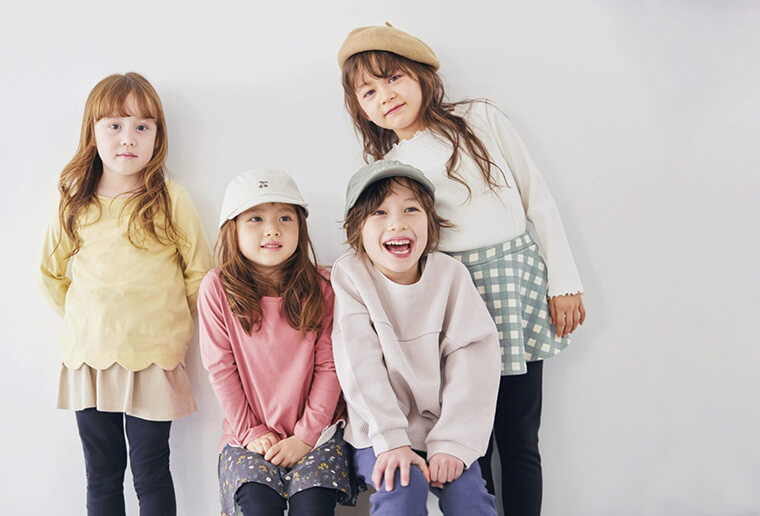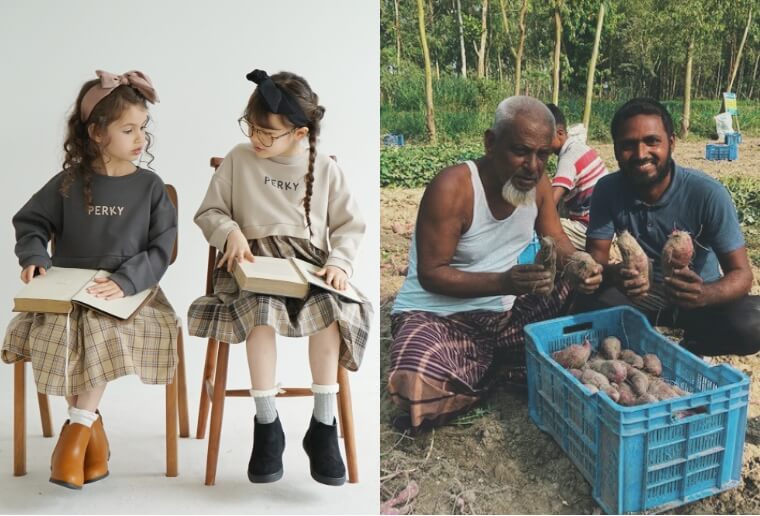JAPAN
QUALITY
Offering “Japan Quality” made possible by our global network
Five key points that make Maruhisa’s “Japan Quality” manufacturing possible
- POINT 1
-
Quality control is achieved through communication on-site and in Japan.
Our Japanese staff on-site, as well as staff at our head office in Japan, communicate closely and in detail with local staff by way of communication tools in order to prevent time loss and mistakes. By fully utilizing the know-how we have cultivated and the filters of Japan and the Japanese staff, even the most difficult specifications are reflected in the intricate and accurate sewing and processing in order to achieve “Japan Quality.”
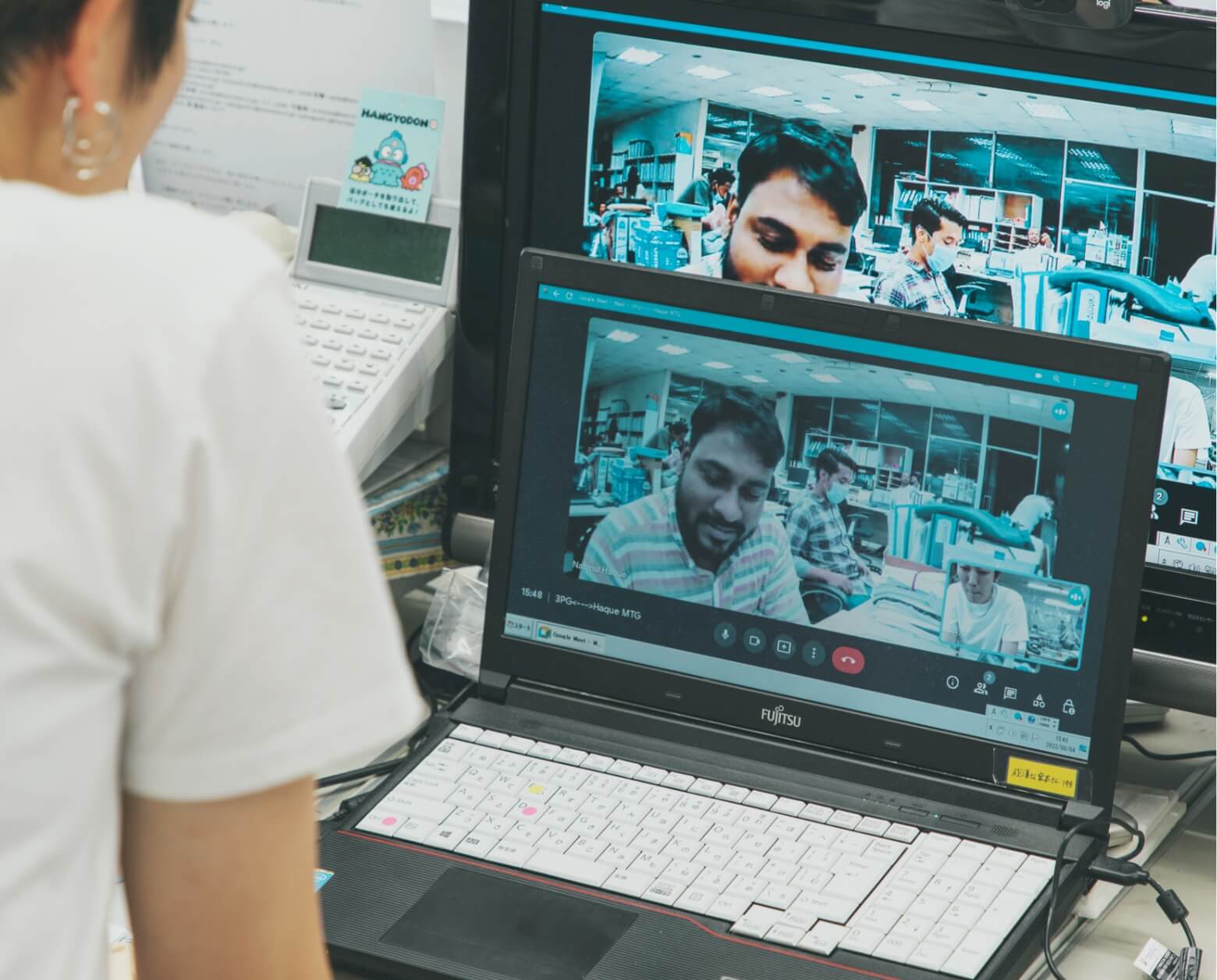
- POINT 2
-
Realizing smart factories
We are continuously working to improve productivity by way of visualization in order to meet deadlines and deliver high-quality products.
We have established a tracking system that enables us to monitor production progress in real time, not only on-site but also in Japan, and to respond without any time loss.
In addition to the DX (Digital Transformation) that enables this visualization, we continue to make investments that further enhance productivity, such as automated spreading machines.
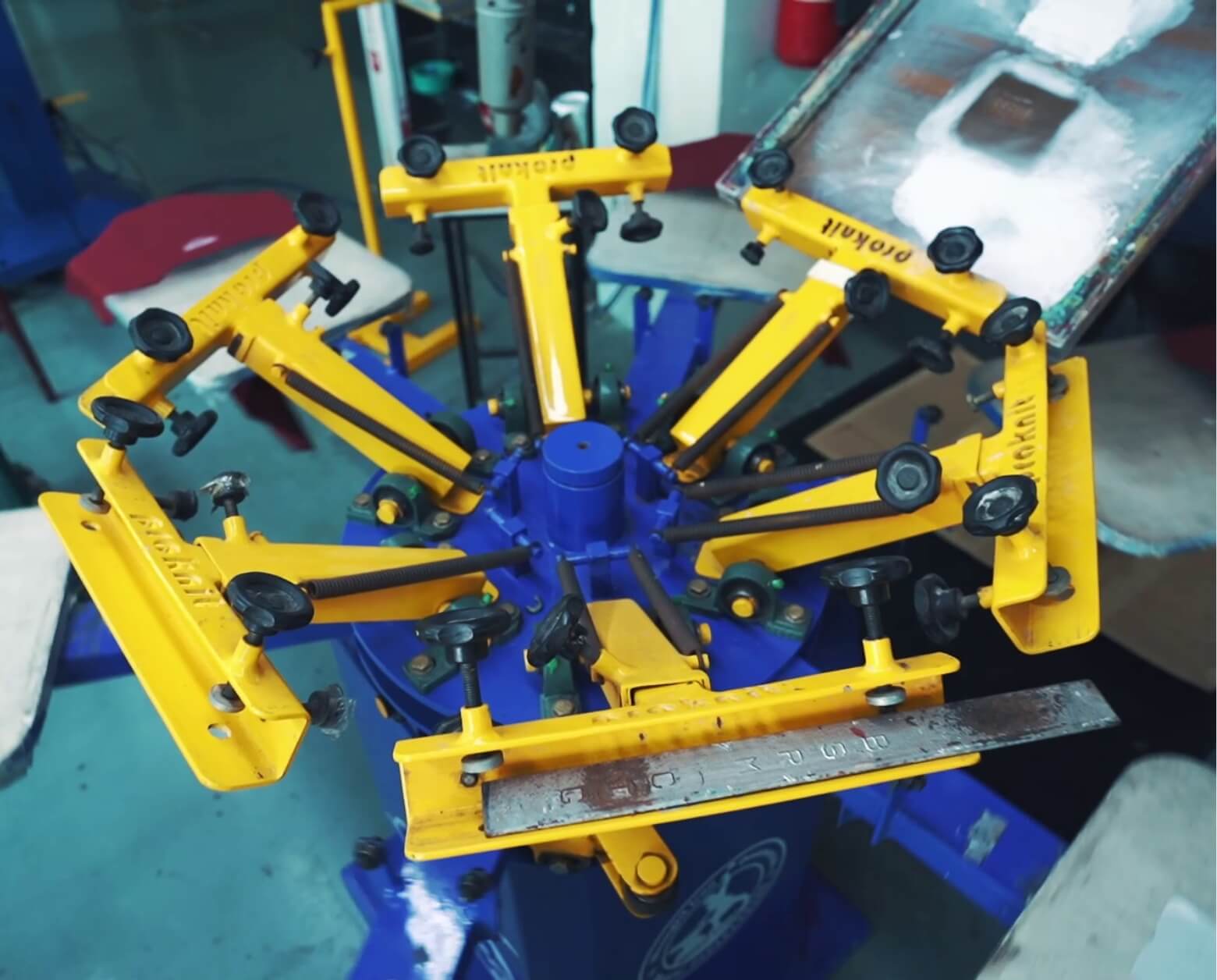
- POINT 3
-
Thorough quality control
We have created an inspection system that ensures “Japan Quality.” A high-level inspection system with laboratories in our factories was constructed under the guidance of a Japanese third-party organization.
We also have on-site testing teams to ensure that our products meet the standards of “Japan Quality.”
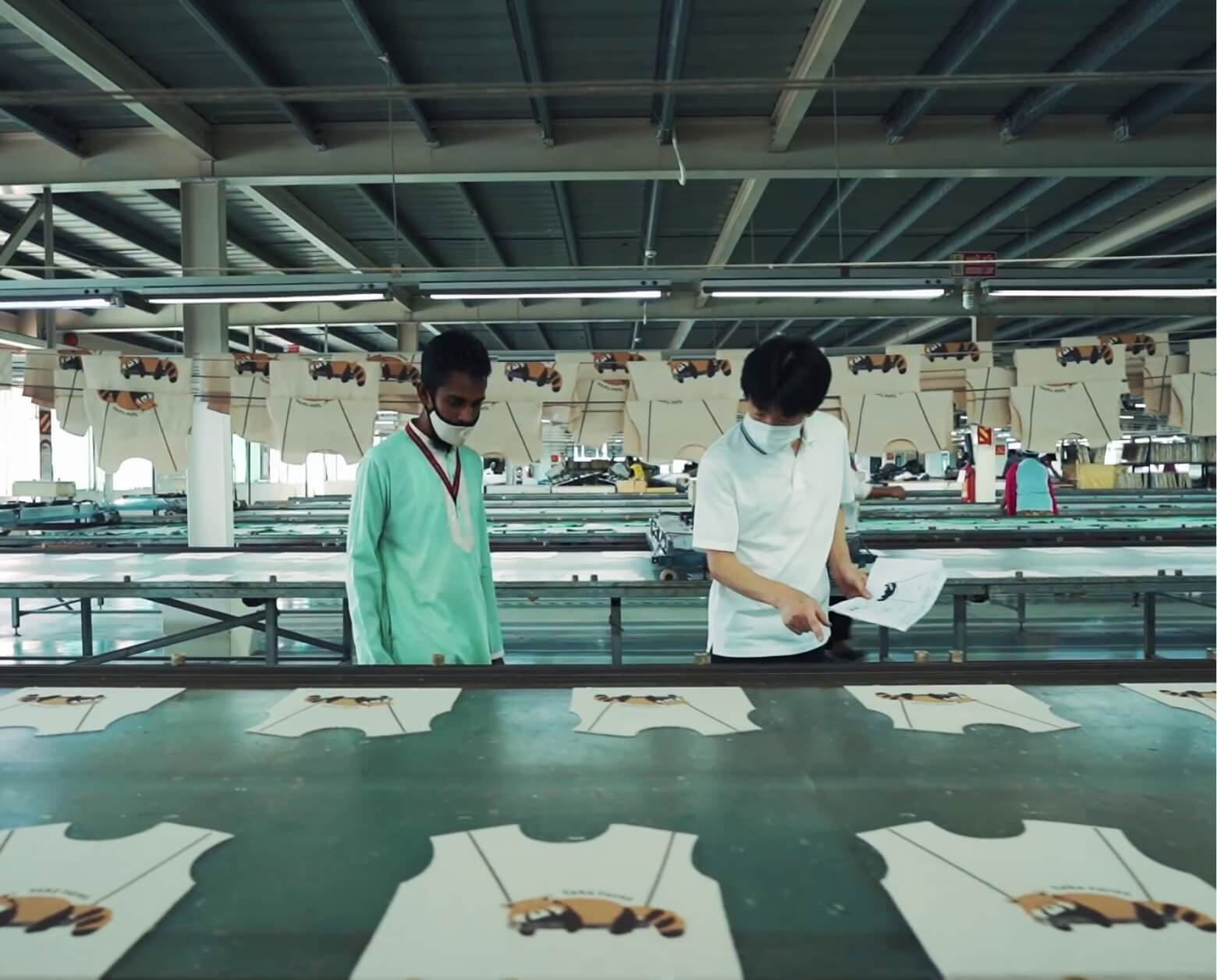
- POINT 4
-
Our unique system for optimized logistics services
We provide optimized logistics services suited to situational needs through full utilization of the know-how and global network we have developed over many years.
Shipping status can be tracked in real time, and in the event of a problem, we have a system that allows us to respond quickly and in cooperation with external parties so that we can consistently provide our customers in Japan with “Japan Quality.”
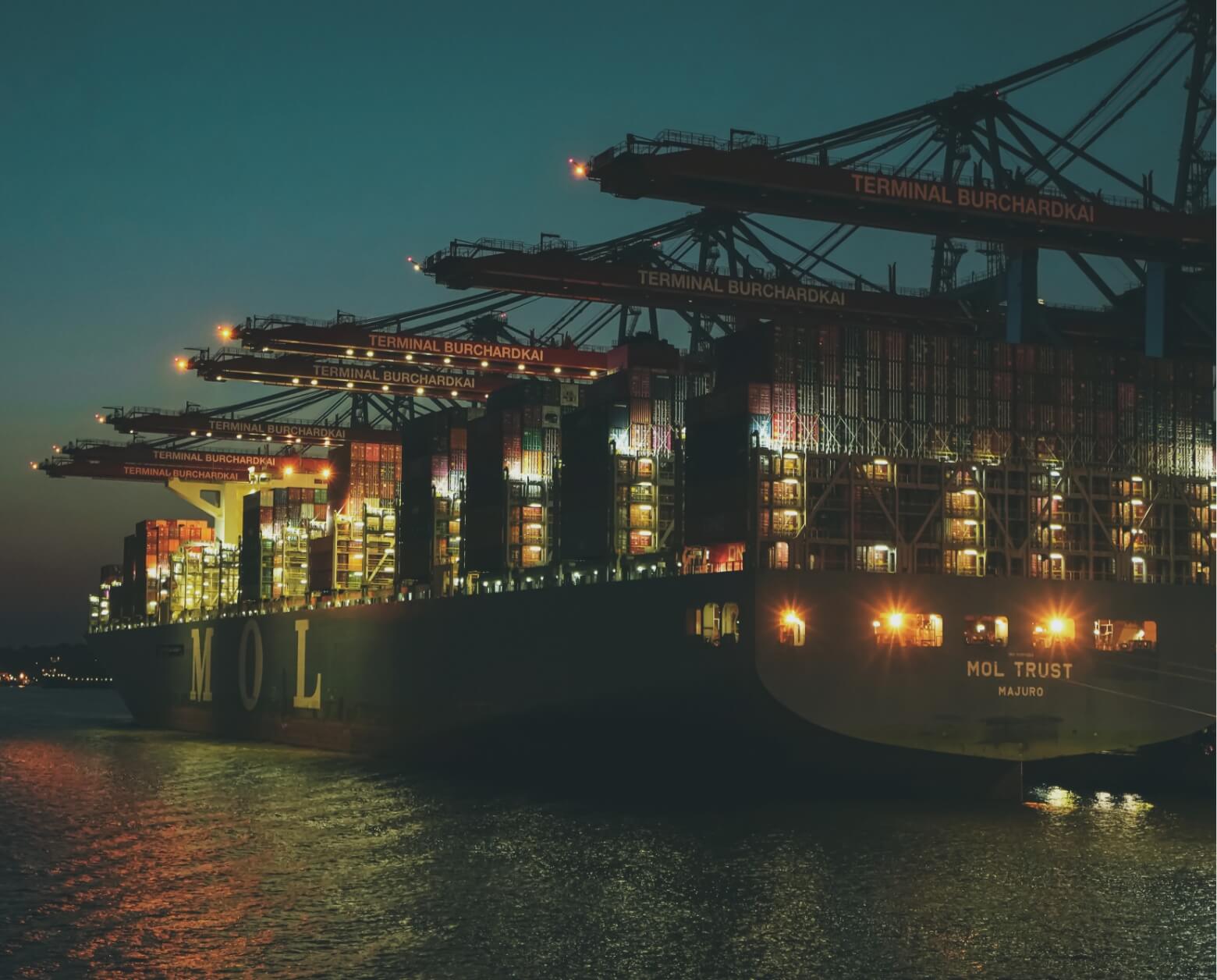
- POINT 5
-
A management system run by on-site Japanese staff
By having skilled workers with many years of experience manage production, we can produce high- quality products that meet Japanese standards and train local managers to give them the ability to do the Japanese work locally.
Our on-site Japanese staff’s continuous technical and managerial guidance to the local staff over the years has led to the creation of a system that can respond to a wide range of situations and provide services to everyone.
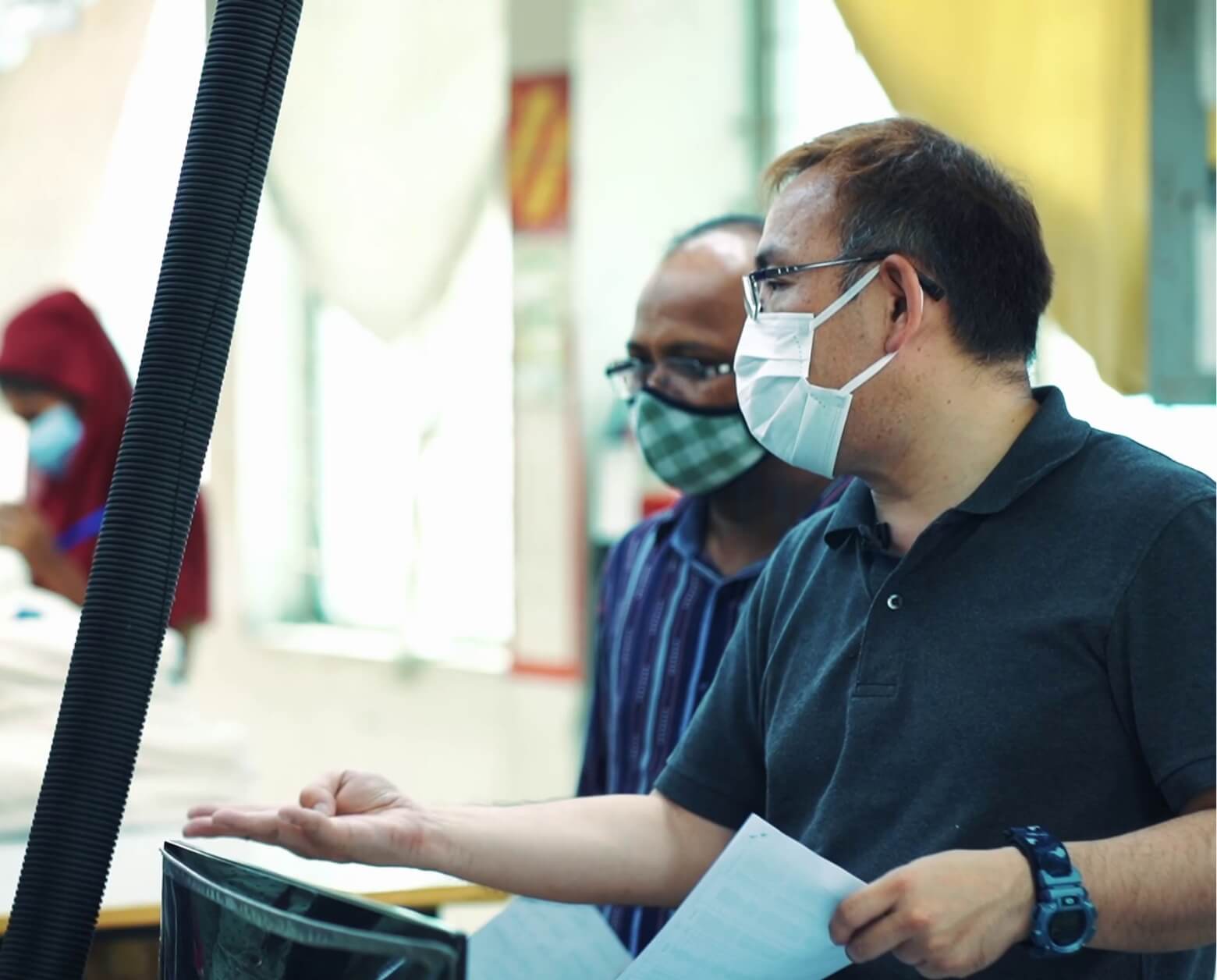
Maruhisa Bangladesh Factory

MPC is an integrated factory that combines four facilities—knitting, dyeing, printing, and sewing—in one location.
Our factory in Bangladesh (Maruhisa Pacific Co., Ltd.), which started operations in June of 2010, added its knitting and dyeing facilities in December 2011, and has since become an integrated factory capable of handling all production processes in-house.
The initial 100 employees at the start of operations have increased to 1,850 today, and we are actively promoting fabric development while also gradually increasing the production capacity of each process in order to meet the needs and expectations of our domestic and overseas clients. Moving forward, MPC aims to become a factory with the functionality and production capacity be capable of producing clothing items for both the Japanese and international markets.
Facilities
-

Knitting Factory
Knitting Machines
A total of 19 machines (10 jersey, 2 lined, 4 ribbed, 2 low-gauge, 1 engineer), with a daily production of 2,000kg, in addition to the output of partner factories.
-
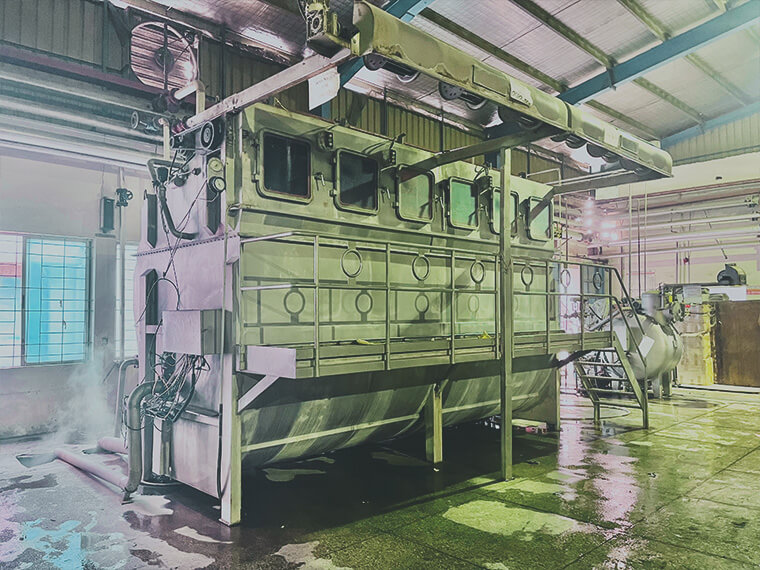
Dyeing Factory
Normal-Temperature/Normal-Pressure Dyeing Machines
A total of 6 machines (30, 250×2, 400, 600, 1,200kg), also capable of dyeing cotton and nylon fabrics. (Daily production 2,500kg)
-
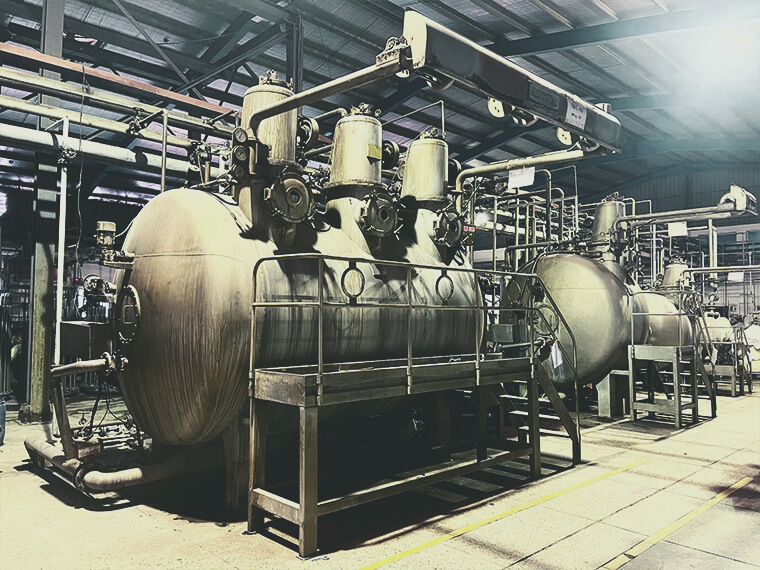
Dyeing Factory
High-Temperature/High-Pressure Dyeing Machines
A total of 9 machines (10×2, 30×2, 100×2, 200, 500, 600kg), also capable of dyeing polyester fabric. (Daily production 3,500kg)
-
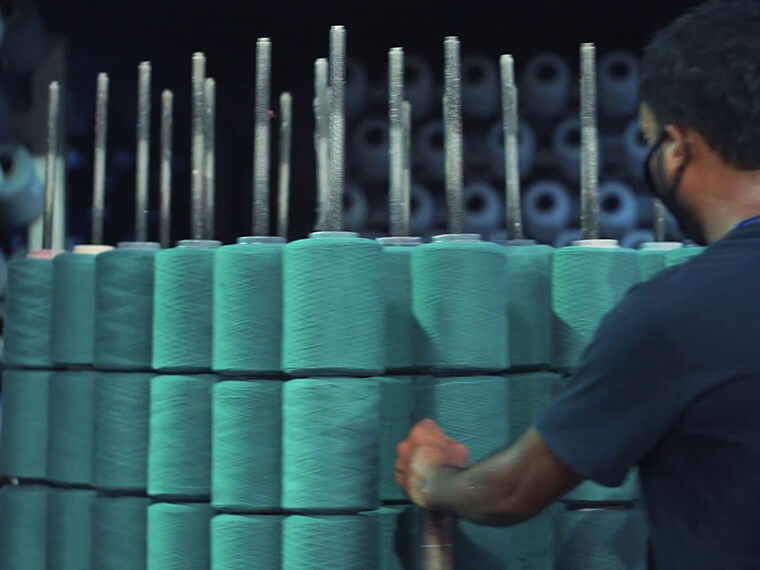
Dyeing Factory
Yarn Dyeing Machines
A total of 4 machines (10, 50, 300, 500kg), also capable of pre-dyed stripes. (Daily production 1,000kg)
-
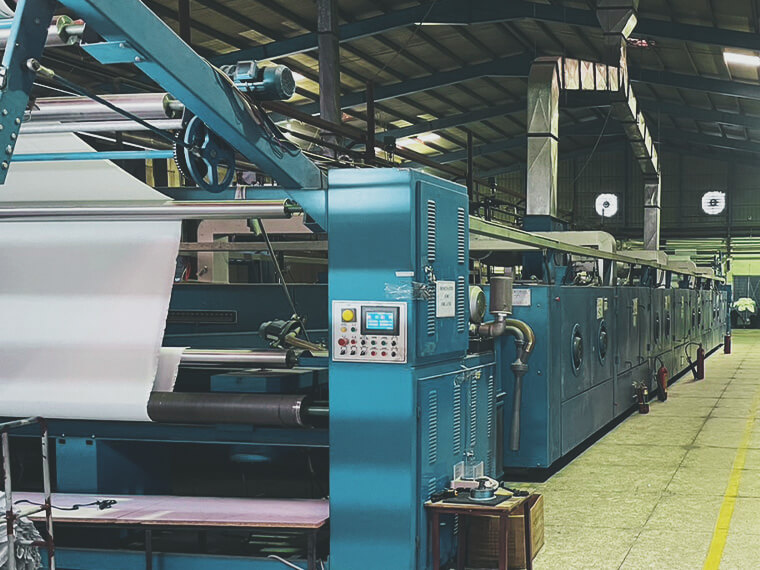
Dyeing Factory
Stenters
2 machines that make regulating the shrinkage rate of fabrics possible.
-
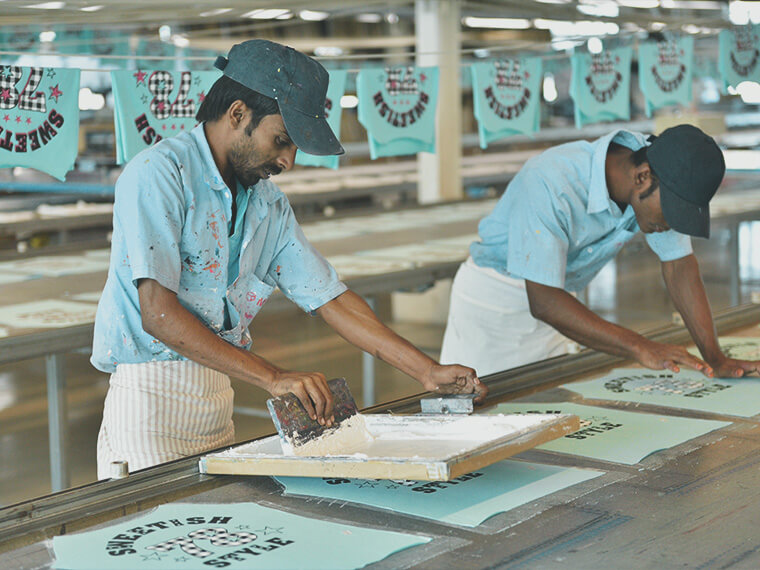
Printing Factory
Hand Printing
A wide range of printing methods can be produced, including pigmented, rubber, glitter, foam, flocked, cracked, and thick film.
-
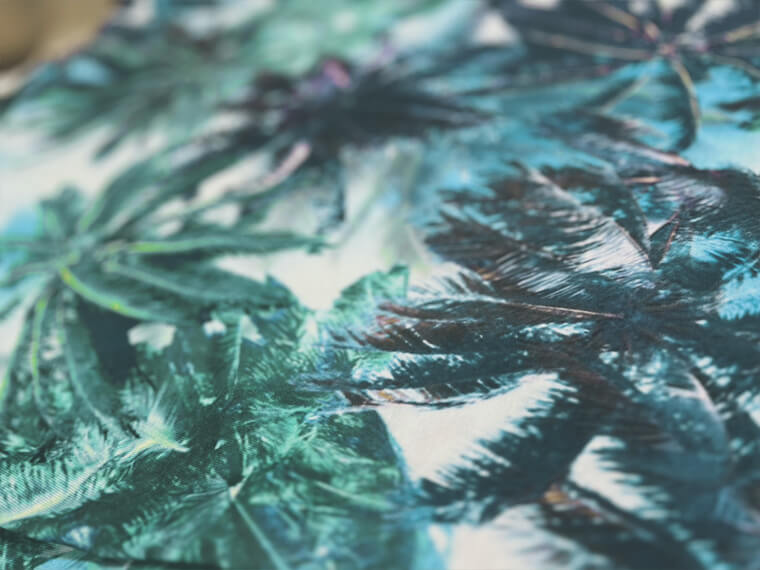
Printing Factory
Fabric Heat Transfer Printing Machine
Original designs can be created and then transferred onto polyester fabric.
-
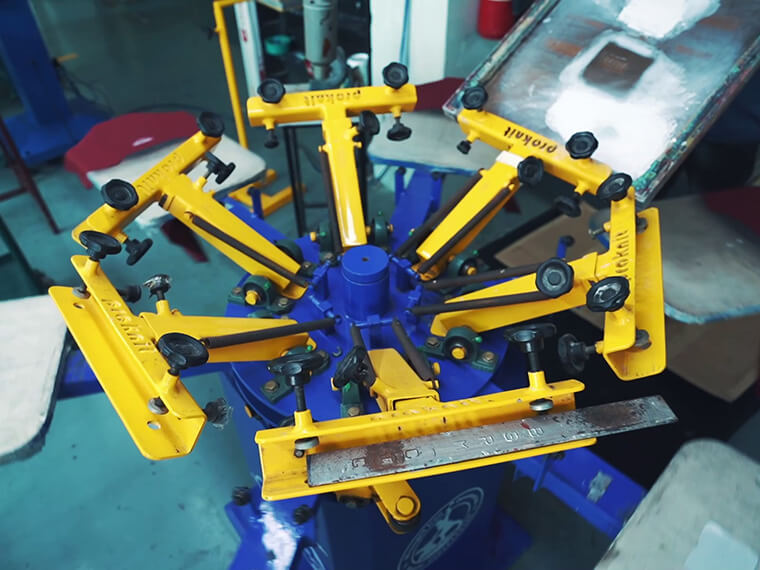
Printing Factory
Spider Printing Machine
2 machines, also capable of printing photos, etc.
-
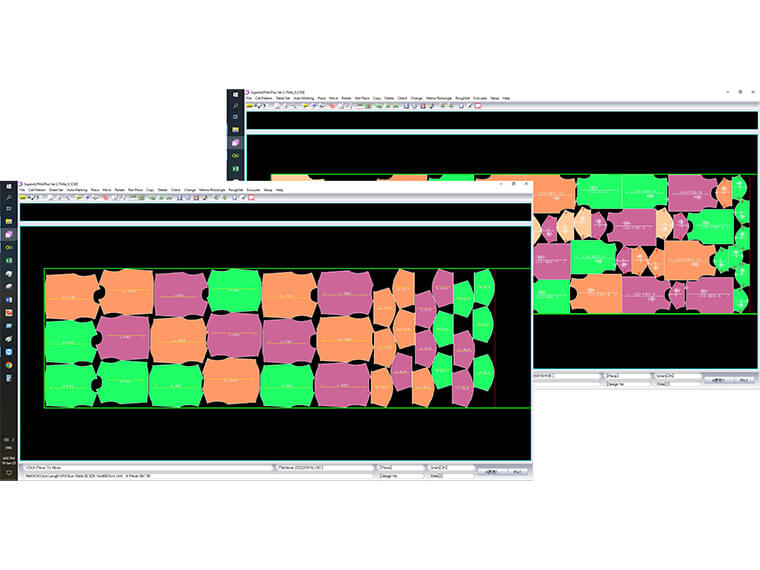
Sewing Factory
CAD (Automated Marking)
Automatic marking allows us to minimize the amount of fabric used in the production of all of our products.
-

Sewing Factory
Automated Spreading Machines
4 machines capable of consistently spreading even the softest fabrics. (Daily production 30,000 items)
-
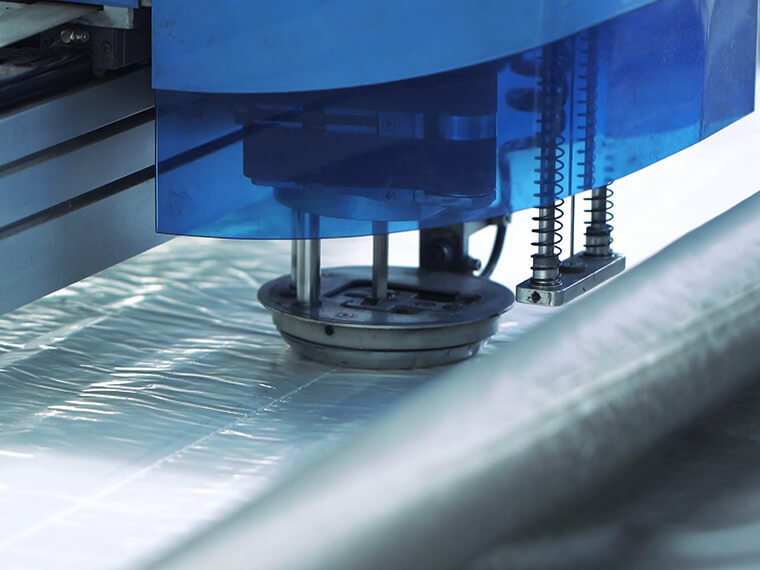
Sewing Factory
Automated Cutting Machines
2 machines, capable of cutting even the smallest parts. (Daily production 30,000 items)
-
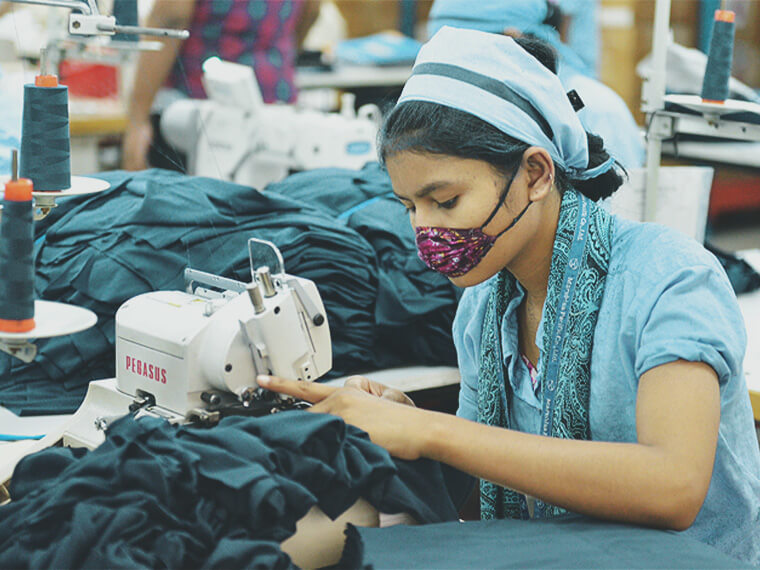
Sewing Factory
Sewing
Approximately 1,250 sewing machines on-site, capable of a daily production of 30,000 items (approximately 750,000 monthly).
-
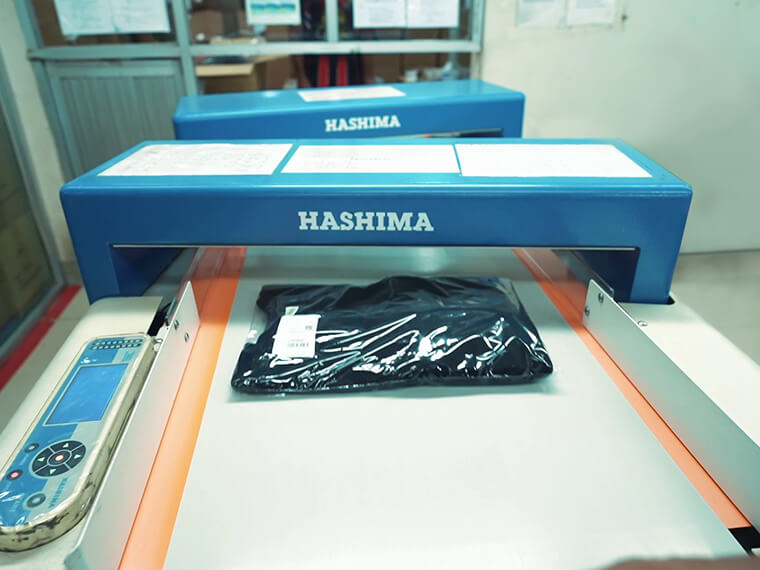
Sewing Factory
Conveyor-Type Needle Detectors
5 machines (2 double-head, 3 single head), used to confirm the safety of all of our products.
-
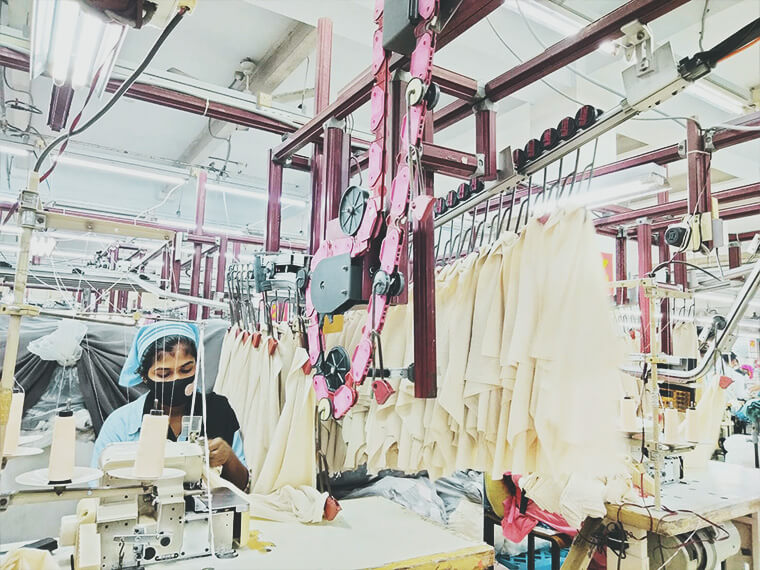
Sewing Factory
Hanger System
40 stations that can be configured into one or two lines to increase productivity.
Certification
Subsidiary in Thailand

From December 1990 to June 2024, our factory in Thailand (Maruhisa International Co., Ltd.) has been producing high-end cut-and-sew products by utilizing its advanced technology and experience.
From July 2024, we will specialize in trading company functions and offer OEM/ODM proposals utilizing our partner factories in Thailand and ASEAN countries. We will make better proposals to our customers based on the know-how we have cultivated.
Facilities
-
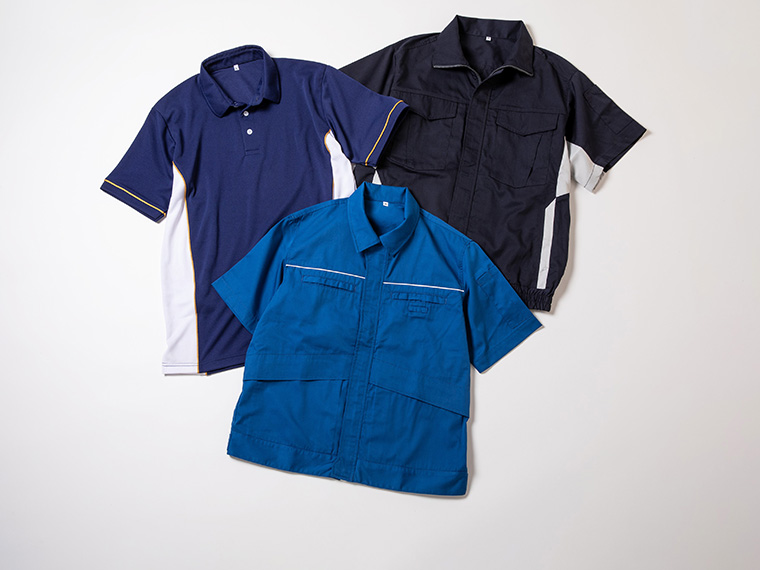
We have a track record of producing many uniforms using factories in Thailand. We can also handle small-lot orders.
-
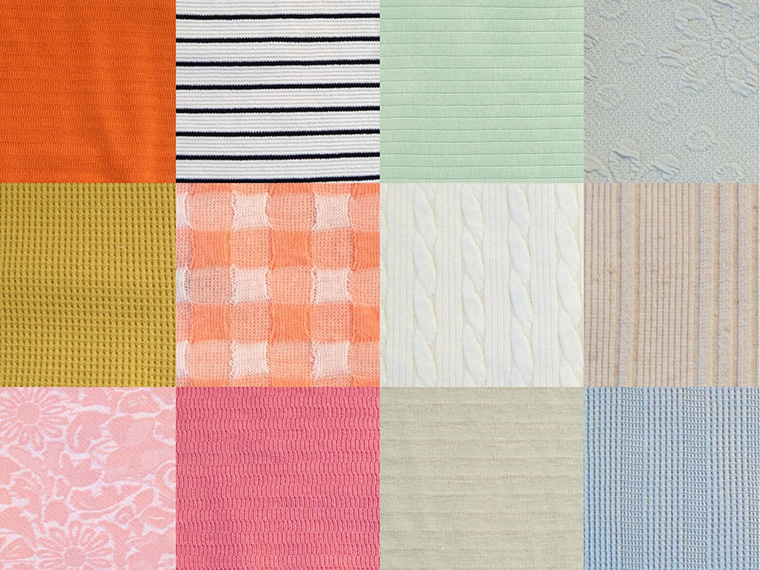
We handle a wide range of clothing types, not only cut-and-sew products, and are committed to a high level of quality control.
-
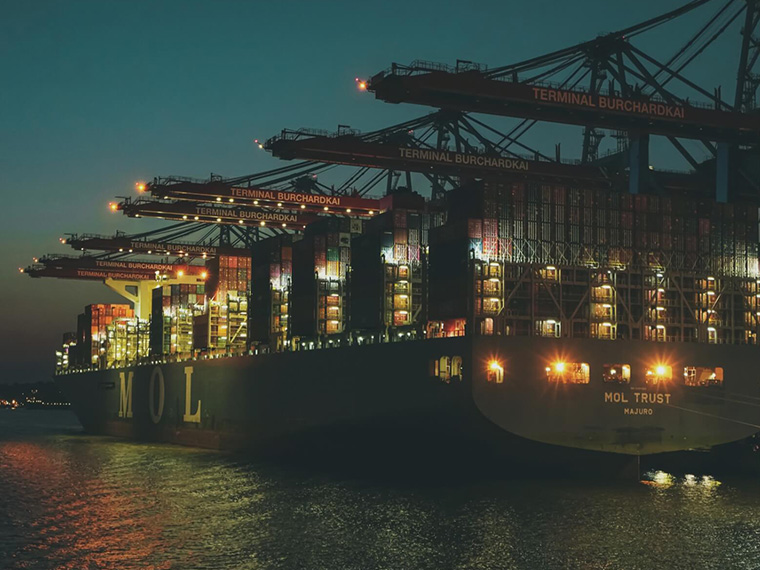
We can handle a wide range of exports to Japan and to countries other than Japan.
More Business



